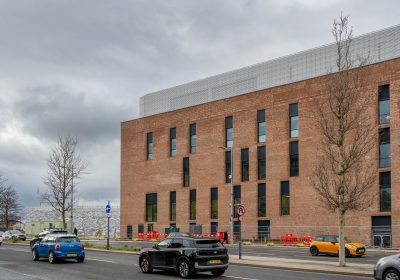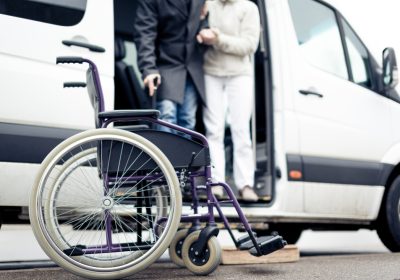The inability to register as an NHS patient with dental practices, websites saying they are accepting NHS patients when they aren’t and inadequate advice provided to people seeking help – particularly with emergency appointments and 111 services – are among the chief concerns raised.
For the first time ever both a national and local Healthwatch representative were invited to give evidence together to an inquiry being held by the House of Commons Health and Care Select Committee on NHS dentistry.
Chief executive officer of Healthwatch Lincolnshire Sarah Fletcher, alongside Chris McCann from the Healthwatch England (HWE) leadership team, (both pictured) provided powerful evidence to MPs about woeful access to NHS dentistry.
Sarah Fletcher told MPs:
- They’d had 700 queries or experiences shared by people about dentistry in the past year
- People were having to travel hundreds of miles and take time off work to see a dentist
- Patients were having to choose between heating or paying for dental care
- The system was unfair and didn’t prioritise people in greatest need to be seen first
- Her staff dreaded calls on dentistry as there was usually no solution they could offer.
 Asked by the committee’s chair Steve Brine, what she would want to say to the Minister responsible for dentistry, Sarah said: “Sit and listen to the people who are really struggling. Listen to what their experience is and how it is impacting them. One person said to us ‘How would they [policy makers] know?’ If you can afford private dentistry, you have no idea what it feels like to not be able to get to an NHS dentist because you cannot afford it.”
Asked by the committee’s chair Steve Brine, what she would want to say to the Minister responsible for dentistry, Sarah said: “Sit and listen to the people who are really struggling. Listen to what their experience is and how it is impacting them. One person said to us ‘How would they [policy makers] know?’ If you can afford private dentistry, you have no idea what it feels like to not be able to get to an NHS dentist because you cannot afford it.”
Chris McCann, director of communications, insight and campaigns at HWE told MPs:
- Dentistry access had always been a problem but now made up around 20% of all feedback shared with Healthwatch across England, compared to 5%, pre-pandemic
- The NHS dental crisis was also a social justice issue, exacerbating inequalities already experienced by certain parts of the population
- The system needed to be reformed so people could truly register and stay with a dentist in the same way as they did with GPs
- The starting point for change had to be new national oral health needs assessment to decide the level of funding needed for dentistry.
He added: “When you know where the areas of need are, the resource should start to be based on that. Whereas, as it is at the minute, there is a budgetary envelope of resource and the NHS is expected to fix all the problems within that, which obviously is not working.”
MPs then questioned primary care minister Neil O’Brien and NHS England officials often referring to Healthwatch evidence. The minister said:
- There was ‘a lot to fix’ in NHS dentistry but he believed more dentists were doing NHS work than last year
- His priority was to help people with complex dental needs who currently didn’t have any contact with an NHS dentists (but he didn’t detail how this would be achieved)
- He agreed that access needed to improve, especially in terms of people not being forced to travel long distances to NHS services
- The upcoming NHS workforce plan would extend the roles of dental hygenists and therapists to take on some of the workload of dentists.
The committee is to publish its inquiry report and recommendations to government later.
Healthwatch South Tyneside will be examining access to NHS dental services this year. We will be working with the British Dental Association and approaching local dental practices to discuss issues raised and look to identify areas to improve communication with people needing dental care.
We will also be conducting a patient survey and holding focus groups. More information about this will follow soon.






